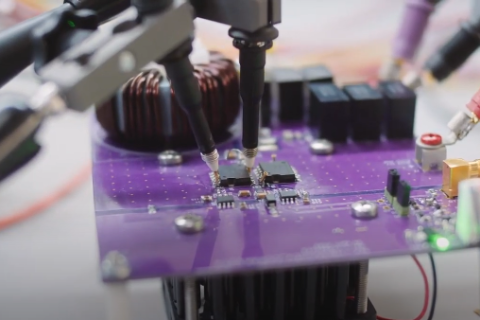Dutch semiconductor maker Nexperia has suspended wafer shipments to its assembly facility in Dongguan, China, escalating a months-long standoff that has rippled through the global automotive and electronics supply chain. The suspension follows the Dutch government's seizure of the company from Chinese owner Wingtech Technology, deepening concerns among automakers already grappling with chip shortages.
In a letter to customers dated October 29 and reviewed by Reuters, interim CEO Stefan Tilger said Nexperia halted wafer deliveries to its Dongguan plant on October 26, citing "the local management's recent failure to comply with the agreed contractual payment terms." Tilger wrote, "While we have maintained shipments for as long as commercially feasible, continuing the current flow of supply from our front-end sites is no longer justifiable."
The move comes amid widening tensions after the Netherlands took control of Nexperia on September 30, ousting its Chinese CEO and citing "governance shortcomings" and national security concerns. Dutch authorities acted one day after Washington unveiled its "50 percent subsidiary rule," expanding U.S. export restrictions to companies majority-owned by entities on the trade blacklist. Because Wingtech was already listed, Nexperia fell under the rule's reach.
Following the takeover, Nexperia's Chinese subsidiary attempted to assert operational independence by resuming domestic sales and requiring customers to settle payments in Chinese yuan rather than U.S. dollars. The Dongguan unit's defiance prompted Nexperia's European leadership to cut wafer shipments and explore "alternative solutions to ensure supply continuity" for clients worldwide.
The suspension adds pressure to the automotive industry. Stellantis said Thursday it had established a "war room" to monitor potential disruptions, while Nissan warned its chip inventory could sustain operations only through early November. Prices for Nexperia components in China have already surged more than tenfold over the past two weeks, according to a source familiar with market conditions.
Although the company stressed it is not withdrawing from China, it acknowledged that operations there face severe constraints after Beijing imposed export controls on semiconductors produced at the Dongguan facility. "Unless these contractual obligations are fully satisfied, we cannot resume wafer supply to the site," Nexperia's letter said.
Nexperia emphasized its financial independence from Wingtech, stating that it "does not raise capital" from its former parent. Yet geopolitical analysts say the company has become a flashpoint in the broader U.S.-China technology contest, with Europe caught in between. "The Netherlands faces a complex dilemma between legal consistency, political credibility, and industrial survival," said Sebastian Contin Trillo-Figueroa, an AsiaGlobal Fellow at the University of Hong Kong.
The U.S. recently agreed to suspend implementation of its 50 percent subsidiary rule for one year following a meeting between President Donald Trump and Chinese President Xi Jinping. Analysts say the temporary reprieve eases pressure on Nexperia and may allow Wingtech to negotiate a settlement with Dutch authorities. However, Chinese regulators continue to restrict exports from Nexperia's factories, limiting immediate relief for manufacturers.
Despite the one-year window, uncertainty looms. "In the worst-case scenario, there could be shareholding changes alongside supply chain reshuffling," said Gary Ng, senior economist at Natixis Corporate and Investment Bank.





